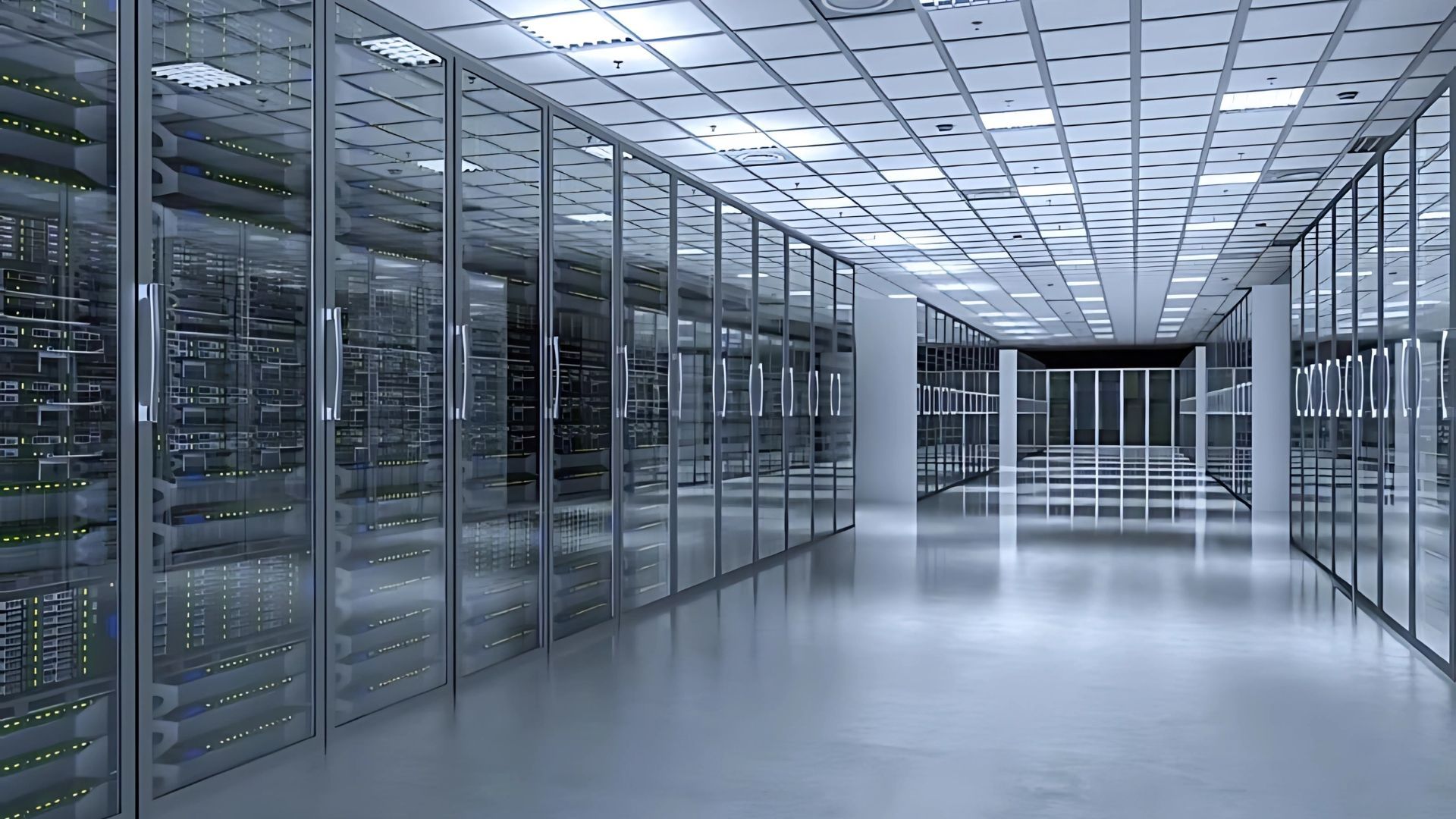What do data centres do at Christmas?
Data centres and their employees have to work harder at Christmas than at other times of year. Find out why.

On an average day, an average person might send a photo to a friend on WhatsApp, access a file on Google Drive, take a call on Teams and watch a show on Disney+. None of this would be possible without data centres.
Yes, data centres are the powerhouses of our digital lives. And like any powerhouse, they sometimes have to work harder than usual.
In the same way that more gas is used in winter than in summer, so data centres are working at full steam during the festive season. Why? Because there's a huge increase in online activity in the days surrounding Christmas.
The key reason for this is online shopping. Online shopping has been a feature of modern life for a while – but since the pandemic, it's skyrocketed. And when there are gifts to be bought, both online retailers and data centres have to be poised for action.
It's not just online shopping that strains data centres at Christmas. There's also an uptick in video calls, film and TV streaming and even video gaming.
So, this Christmas, spare a thought for the data centre staff who are working hard to keep the festive season afloat…
Increased workload
All holiday seasons see a spike in online shopping. But Christmas is a consumer frenzy. This means data centres have to process more data.
To give you a sense of scale, online sales in Christmas 2023 reached a staggering $1.17 trillion. Meanwhile, Black Friday sales raked in $9.8 billion and Cyber Monday $12.4 billion.
Data centres have to work hard to ensure their servers can cope with the traffic. Meanwhile, online retailers have to ensure their data processing needs are met by multiple data centres and cloud-based services.
We kicked off this article with a reminder of just how ubiquitous the cloud is in most of our lives. Now, imagine an online customer journey.

Every step of the process is powered by data centres – from marketing to customer service, from CRMs to shipping. If there's a data centre outage, both customers and businesses stand to be unhappy. If the problem isn't quickly fixed, the customer won't receive her goodies and the business will lose out on revenue.
This is one reason why so many businesses now use multi-cloud infrastructures that spread risk across different cloud environments. It's sensible all year round, but at Christmas, it's more important than ever.
Monitoring and maintenance
The language of the internet can suggest that it runs autonomously. We use "the internet" and "the cloud". We talk of what AI can do for businesses. And we talk of "data centres", not "data centre staff".
But data centres are work environments like any other. They're monitored and maintained by staff. As well as handling customer requests, data centre employees are responsible for keeping the engine room of the cloud in good working order. That failed hard drive isn't going to replace itself, after all.
And like many work environments, data centres are busier at Christmas because there's simply more traffic to process. It's their responsibility to ensure that those rows of servers are up to the task.
Cybersecurity
Cybersecurity is an essential concern for businesses and data centres alike from 1 January to 31 December. But an increase in online activity means an increase in cybersecurity threats. At Christmas, everyone involved needs to be more vigilant than ever – and data centres are no exception.
Incidentally, there's an upsurge in online scams during the Christmas period. We assume our readers are tech-savvy, but still – be careful what you click!
Workplace and industry events
Data centres are now an essential part of modern infrastructure, as critical to our daily operations as sewage plants and power stations.
And like those facilities, data centres are places of work. Why wouldn't data centre staff celebrate Christmas, too?

Data centres put on Christmas parties just like you and us. They also hold networking events and charity initiatives.
Christmas, then, is a time of year when data centres need plenty of elbow grease. But they still know how to party…
Other online activities
Think of an online service and it's probably used more around Christmas. It seems that, for many people, time at home means more time on devices.
The main reason for the increase in online activity at Christmas is eCommerce. But people across the world are also putting a strain on data centres with video calls, streaming and online gaming.
Understandably, video calls were at their height during the pandemic. But they're still a familiar part of many people's lives – and their Christmases.
A Vodafone
poll, for instance, found that 90% of UK adults who celebrate Christmas use "connected devices" (smartphones, tablets, smart watches and so on) to stay in touch with friends and family.
Video calls use more data than audio calls – but it's not just your data plan and battery taking the hit. It's also the data centres that make them possible in the first place.
The same goes for streaming services like Netflix, Disney+ and Amazon Prime. With more people spending time at home, Christmas sees an increase in streaming. Data centre staff have to work hard to ensure that demand is being met.
Finally, there's online gaming. There'll be many a PlayStation 5 under the tree this year – and those data centres need to keep the wheels turning to keep lag down and scores high.
Final thoughts
With its significant increase in online sales, video calls and streaming, Christmas wouldn't be possible without data centres running smoothly. And for them to run smoothly, staff need to work harder than ever to monitor and maintain the servers. We salute them!
Ascend Cloud Solutions is a team of Cork-based cloud experts. Discover our
cloud services and solutions – or
get in touch to book a free discovery call.











